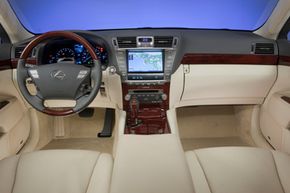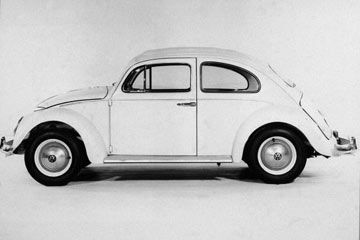Once upon a time, cars were noisy. In fact, some cars were really, really noisy. Decades ago, drivers and passengers had to experience engine sounds, wind noise, tire roar and interior vibrations and rattles that are considered completely unacceptable today. Modern cars are designed to be like cocoons that shield the driver from external forces -- and noise.
High-end luxury cars, like the ones made by Lexus and Audi among others, put a special emphasis on being quiet. You pay a lot for a luxury car, so you should expect to ride in comfort. However, the sportier the car, the noisier it tends to be. Sports cars like the Pontiac Solstice and Lotus Elise put an emphasis on performance, so they lack the noise-cancelling equipment of a luxury car [source: Petersen]. Still, modern cars are much quieter than those of the past.
Advertisement
But will those modern safeguards against loud noises wear down? Will your car's interior get noisier over time? It can. A number of mechanical problems can lead to more noise in the cabin. Let's start with the sound system. Speakers can blow out, which means that the thin copper wire inside the sound coil gets overheated and melts. This results in a noticeably distorted sound, and the remedy is usually to purchase new speakers [source: Memmer].
Most cars experience some interior rattles on the dashboard, center console, glove compartment or other areas. The knobs and switches that operate these parts can break down. Natural wear and tear over time can make these rattles get louder, necessitating a repair. The various plastic and metal parts inside the car doors can also shake loose or break, making the door creak and moan when it's opened or clunk when it's slammed shut. In addition, your car could develop problems with its vital mechanical parts, like the engine and transmission. When you have these auto problems, it's not uncommon for them to make noise, and for those sounds to seep into the cabin. Squeaking brakes or a loose serpentine belt can also make your previously quiet ride very unpleasant.
Do you see a common thread here? No matter how quiet a car is when it's delivered from the factory, when you have car trouble, things usually get louder. In order to keep them working properly -- not just so the car is quiet, but so it lasts a long time, too -- diagnosing car trouble properly is important.
In addition, if your car is a little too noisy for your taste, there are a few aftermarket solutions available. As one example, you can install sound-deadening material inside the cabin and even under the hood. These patches of material are designed to absorb sound waves and make your ride much quieter. In other words, don't automatically assume you need to trade your car in for a high-end luxury car if you simply want less road noise.
For more information about auto body problems and other related topics, follow the links on the next page.
Advertisement



